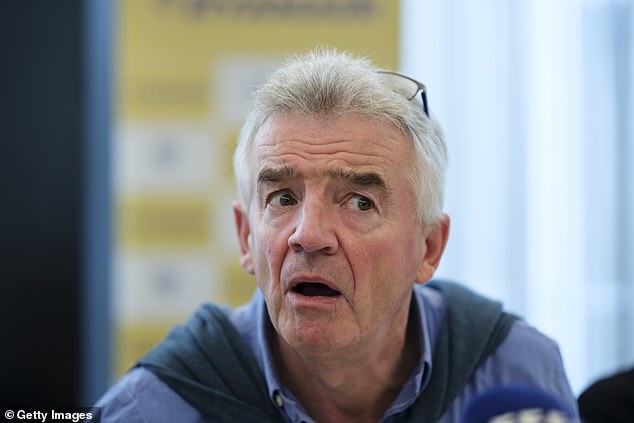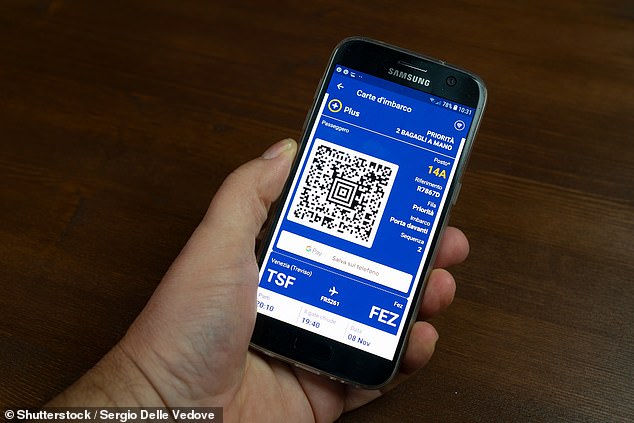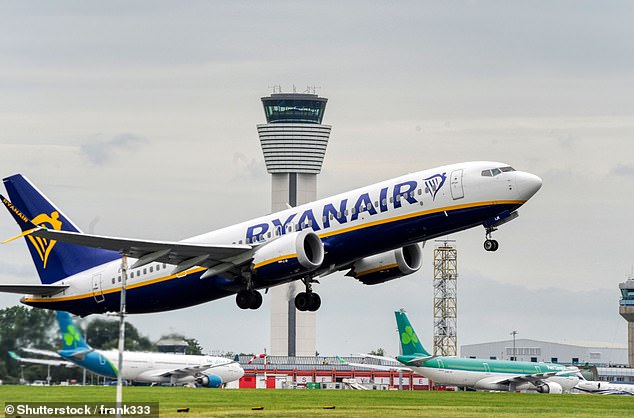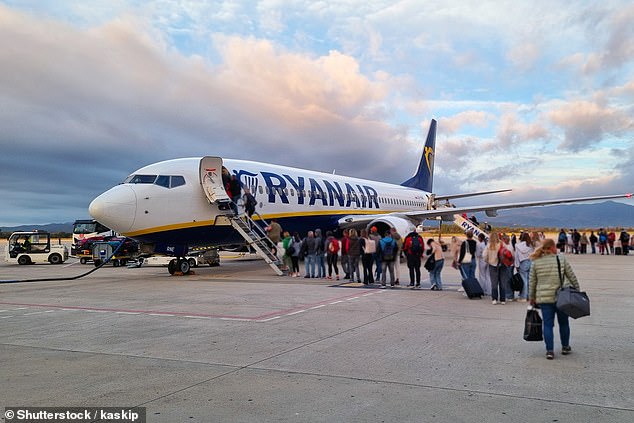Ryanair has issued a warning to all passengers amid strict upcoming rules about boarding passes.
From November 3, any travellers jetting off with Ryanair will be required to carry a digital boarding pass.
The move means passengers will no longer be able to download and print a copy of their pass.
Instead customers will have to use the digital boarding pass created by the myRyanair app after they check-in.
‘We’re getting rid of the paper boarding passes,’ the budget airline’s CEO Michael O’Leary told Simon Calder’s Independent Travel Podcast.
He revealed that a high proportion of customers use mobile phones already and pushed for everyone to.
‘At the moment, between 85 and 90 per cent of passengers show up with smartphones,’ Mr O’Leary said.
‘Almost 100 per cent of passengers have smartphones, and we want to move everybody onto that the smartphone technology.’

Ryanair has issued a warning to all passengers amid strict upcoming rules about boarding passes. Pictured: Ryanair boss Michael O’Leary

From November 3, any travellers jetting off with Ryanair will be required to carry a digital boarding pass

The move means passengers will no longer be able to download and print a copy of their pass
The move to digital is expected to save 300 tonnes of paper every year, according to Ryanair.
It also aims to make travelling simpler, with ‘all travel documents accessible in one convenient place’.
The app also provides customers with ‘direct updates from Ryanair’s operations centre during disruption’.
Mr O’Leary added: ‘If you lose your phone, no issue. As long as you’ve checked in before you got to the airport, we’ll reissue a paper boarding pass at the airport free of charge.
‘But you have to have checked in before you got to the airport.’
He explained that even if a customer’s battery dies, as long as they have checked in the sequence number should still be available in Ryanair’s systems.
‘We’ll take you, you’ll get on,’ Mr O’Leary insisted. ‘So nobody should worry about it.’
He added: ‘Just make sure you check in online before you get to the airport and then all will be fine.’

‘We’re getting rid of the paper boarding passes,’ the budget airline’s CEO Michael O’Leary told Simon Calder’s Independent Travel Podcast

He revealed that a high proportion of customers use mobile phones already and pushed for everyone to
However, some destinations including Morocco and Albania require passengers to print their boarding passes.
Mr O’Leary revealed the airline has resolved this issue somewhat, and ‘reached agreement’ with Albania, meaning from March they will also be digital.
Meanwhile, Morocco ‘still insist on paper’ so Ryanair will be taking paper boarding passes there.
Currently, passengers who check in at the airport instead of online face a fee of up to £55.
It isn’t the only change coming to the budget airline, Mr O’Leary recently announced that Ryanair plans to increase staff bonuses for employees who catch passengers with oversized bags.
It comes after it was revealed staff working for the budget airline can make up to €80 (£68.98) a month just from enforcing the strict rules. Now, this cap is set to be scrapped and other changes are planned.
Ryanair boss Michael O’Leary shared he makes ‘absolutely no apology’ for catching people who are ‘scamming the system’.
He announced at a press conference in central London that he plans to raise incentives for gate staff who intercept passengers trying to bring oversized luggage onboard.

He explained that even if a customer’s battery dies, as long as they have checked in the sequence number should still be available in Ryanair’s systems
The bonuses are likely to be increased from €1.50 (£1.29) to €2.50 (£2.16) per bag from November.
Passengers travelling with Ryanair face strict luggage rules, with fees of up to £75 for putting an oversized bag in the hold if it is brought to the boarding gate.
Only one small bag which can fit under the seat in front is included in the lowest fares.
Mr O’Leary said: ‘I make absolutely no apology for it whatsoever. I want our ground handling people to be catching people who are scamming the system.’
